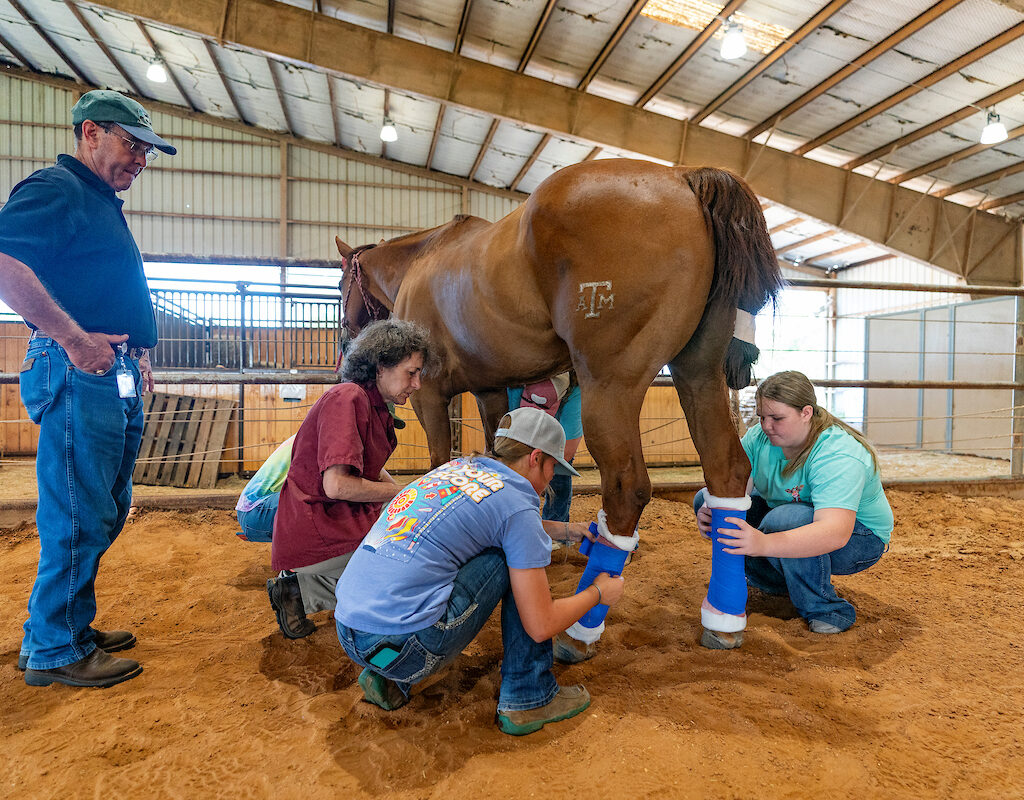Texas 4-H Veterinary Science Project
- Type
- Program
- Offered by
- https://agrilifeextension.tamu.edu/asset-local/texas-4-h-agriculture-livestock-program/

Overview
Contact
Texas A&M AgriLife Extension offers a variety of paths for students to take the veterinary science curriculum including home school and independent study. In addition to the curriculum, there is an apprenticeship requirement if you choose to pursue certification. Successful completion of the Veterinary Science Certificate Program (VSCP) requirements provides a certificate of completion of the program as a veterinary assistant.
An apprenticeship is required for certification. Students must complete 300 hands-on clinical skill hours under the supervision of veterinarian or licensed veterinary technician. This normally takes place in a private veterinary practice, but can also be a zoo, animal shelter, etc., as long as under veterinary supervision. Students will use the VSCP application form/skills validation checklist during the apprenticeship, which will be signed by the DVM and program/homeschool instructor.
A few things you will learn and do in this project are: Animal nutrition, handling and restraining animals, Helping with animal examinations and treatments, infectious diseases of animals, non-infectious diseases and aiding with surgery.
The VSCP offer many events, camps and programming throughout the year. Keep an eye out on our website and social media pages for upcoming events.
More choices in Animals & Livestock
- Course
This course is the first of four sections of the full Veterinary Science: Independent Study Curriculum. It contains the first 6 chapters.
- Course
This course is for beginners that want to learn more about raising sheep and goats. Texas A&M AgriLife Extension specialists use videos to guide you through the first steps to get your production going.
- Course
Diseases in horses can spread rapidly, posing significant risks to herd health. This 1.5-hour self-paced course is designed to help horse owners and professionals identify, prevent, and manage common equine diseases. Covering both viral and bacterial infections, the course emphasizes the importance of routine vaccinations and effective biosecurity practices. By understanding how to spot and control these diseases, participants can reduce risks and ensure the well-being of their horses. Enroll today to protect your equine partners and enhance your knowledge.
- Publication
Our vibrant poster provides a visual journey through the 21 days of a chicken’s embryonic development. It clearly illustrates each stage, from fertilization to hatch. Download now and bring the miracle of life into your classroom! This poster comes in 3 sizes (11×14, 16×20, 24×36) to fit any learning space.
- Publication
Veterinary Science Career Development Events student workbook helps students prepare for a veterinary science contest. This publication includes breeds, organs, parasites and instruments.
- Course
This course is designed as a support resource for individual students participating in the Veterinary Science Certificate Program: Preparatory Training for the Veterinary Assistant. It is designed to assist students as a supplemental resource. This course supports learning from the textbook for one student.
